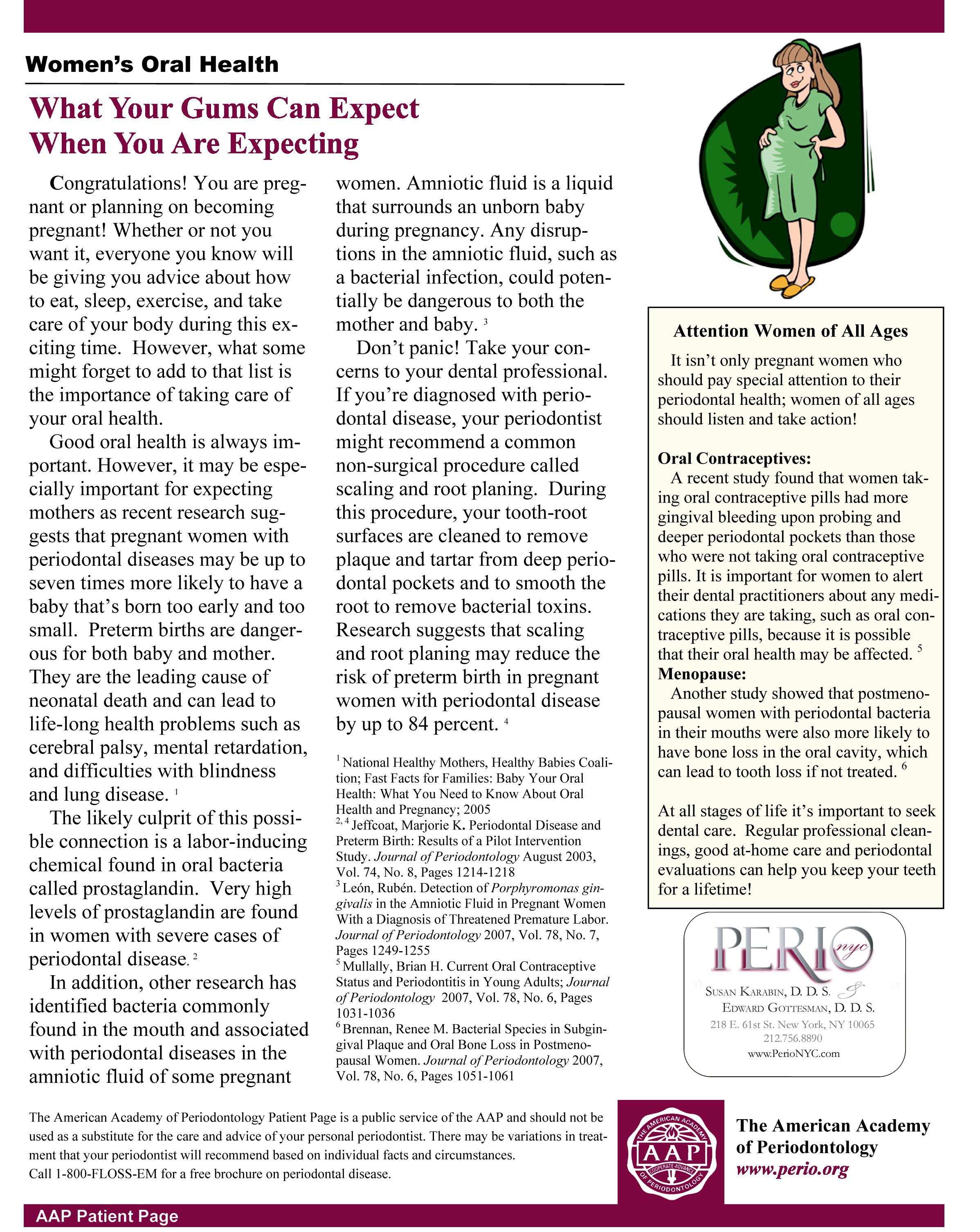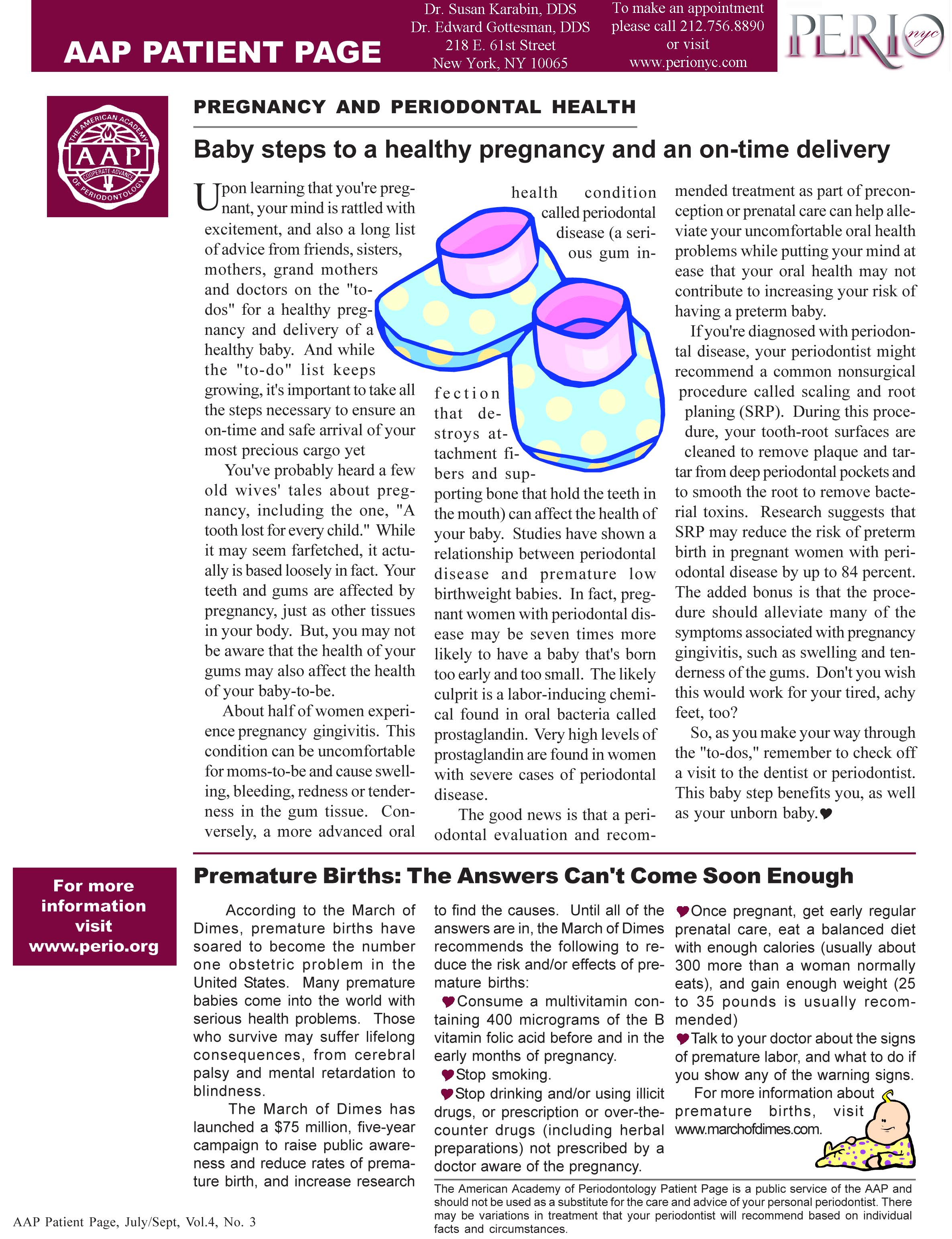Link Found between Gum Disease and Pregnancy Issues
New evidence shows that gum disease can now be lumped in with several other risk factors for pregnancy problems—including drug use, alcohol use and tobacco use. Just as using these substances can cause low birth weight or premature birth, so can gum disease, according to research.
A pregnant woman who has gum disease may be seven times more likely to give birth prematurely (before gestational week 37) or to give birth to a baby who is too small. This possibly happens because excessive bacteria in the mouth, which cause periodontal disease, can enter the bloodstream, travel to the uterus and trigger chemicals that may induce premature labor. Periodontal disease essentially is an advanced form of gum disease.
A pregnant woman’s baby is at risk when she suffers from any type of infection, including infection and inflammation of her gum tissues. If a woman’s periodontal disease worsens during her pregnancy, this only increases her risk of giving birth too soon. Moms in one study who had chronic gum disease ended up delivering their babies as early as 32 weeks.
Women can expect many hormonal changes during pregnancy—particularly an increase in estrogen and progesterone—and these changes increase a woman’s risk for developing periodontal disease. This occurs because the hormones affect how a pregnant woman’s gum tissues react to plaque, or the sticky film that develops on the teeth after food is consumed.
Statistics show that a whopping 30 percent of women get periodontal disease while pregnant. It remains unknown whether treating gum disease reduces the risk of pre-term birth. This is why a woman should be evaluated by a dentist if she is planning to conceive. An expectant mother also needs to maintain good oral hygiene during her pregnancy.





